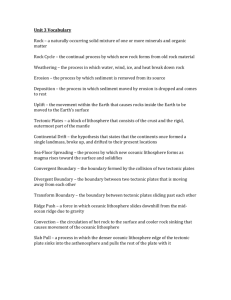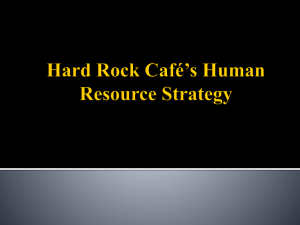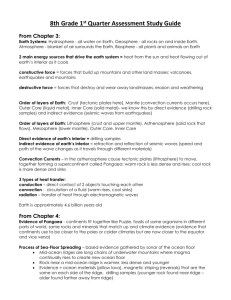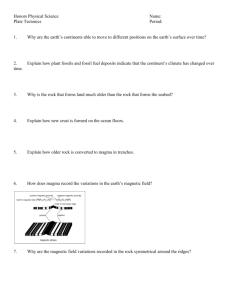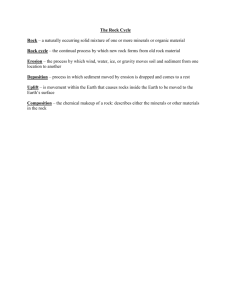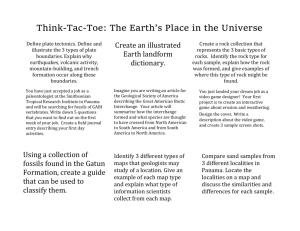Email HW #5B ______ 15. The solid part of Earth is made up of
advertisement
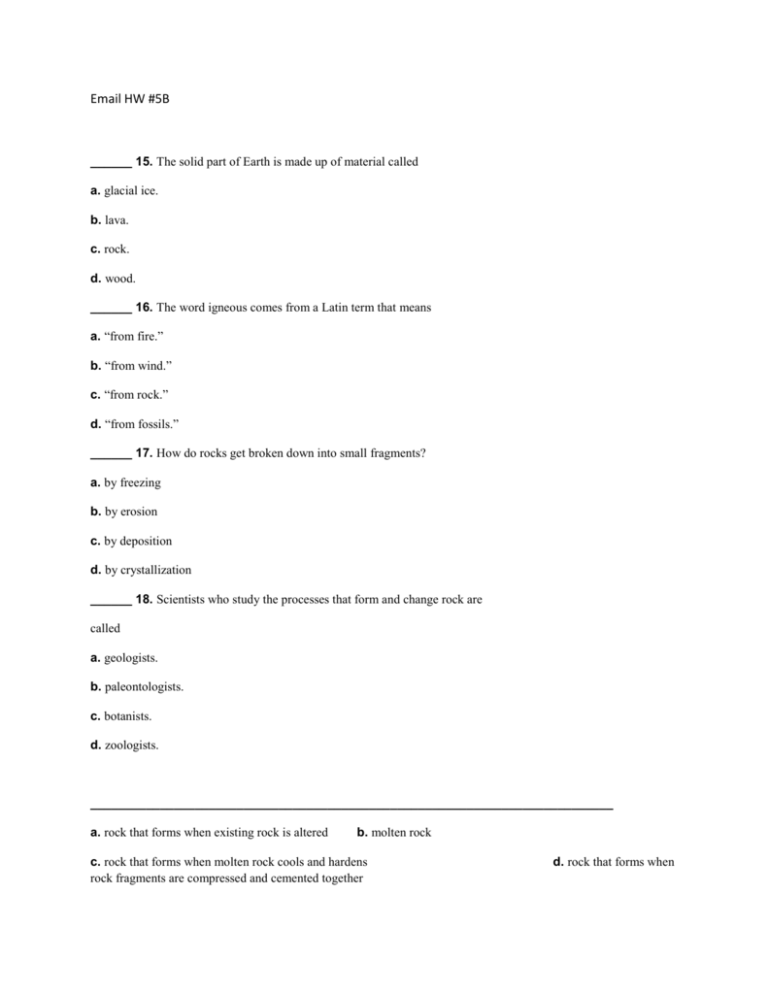
Email HW #5B ______ 15. The solid part of Earth is made up of material called a. glacial ice. b. lava. c. rock. d. wood. ______ 16. The word igneous comes from a Latin term that means a. “from fire.” b. “from wind.” c. “from rock.” d. “from fossils.” ______ 17. How do rocks get broken down into small fragments? a. by freezing b. by erosion c. by deposition d. by crystallization ______ 18. Scientists who study the processes that form and change rock are called a. geologists. b. paleontologists. c. botanists. d. zoologists. ___________________________________________________________________________ a. rock that forms when existing rock is altered b. molten rock c. rock that forms when molten rock cools and hardens rock fragments are compressed and cemented together d. rock that forms when e. molten rock that is exposed at Earth’s surface mineral crystals, and organic matter that have been broken into fragments ______ 19. igneous rock ______ 20. sedimentary rock ______ 21. lava ______ 22. metamorphic rock ______ 23. magma ______ 24. sediment ___________________________________________________________________________________ ______ 25. A favorable location for a wind farm is a a. river. b. mountain pass. c. rainforest. d. city. ______ 26. A plate boundary at which two plates slide past each other horizontally is a a. divergent boundary. b. convergent boundary. c. transform boundary. d. subduction zone. ______ 27. The German scientist Alfred Wegener proposed a hypothesis now called a. paleomagnetism. b. continental drift. c. floating continents. d. sea-floor spreading. f. rocks, ______ 28. Wegener hypothesized that the continents formed part of a single land mass, or a. mid-ocean ridge. b. monocontinent. c. supercontinent. d. world land. __________________________________________________________________________________ a. boundary between tectonic plates that are sliding past each other horizontally b. region where one plate moves under another c. boundary between tectonic plates that are moving away from each other d. undersea mountain range e. short segments of a mid-ocean ridge that are connected by transform boundaries f. the boundary between tectonic plates that are colliding ______ 29. divergent ______ 30. convergent ______ 31. transform ______ 32. mid-ocean ridge ______ 33. subduction zone ______ 34. fracture zone

